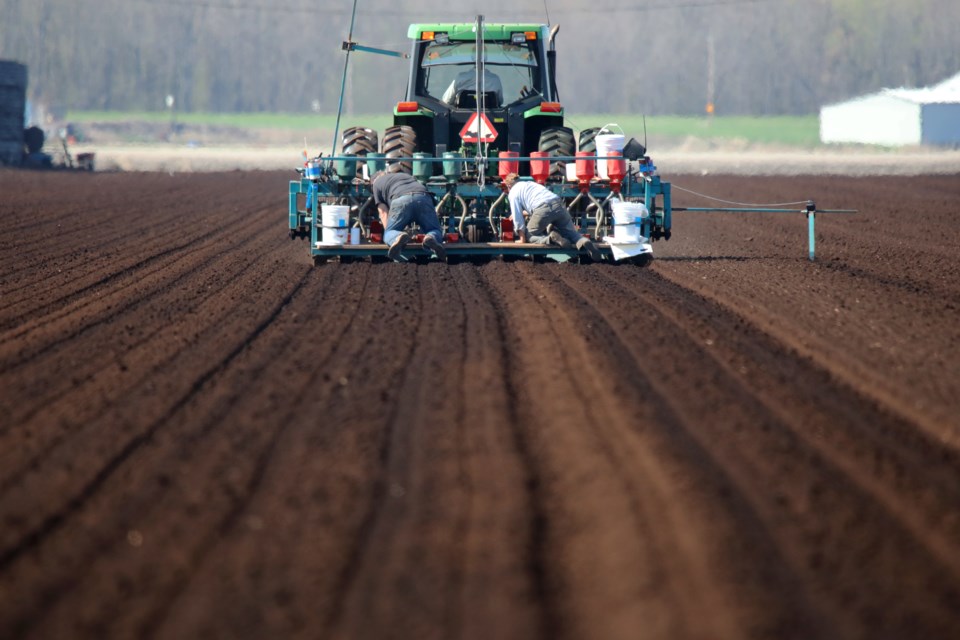The decision to annex Holland Marsh lands is not a simple one, but York-Simcoe’s MPP candidates are open to discussing it.
“In my conversations with Holland Marsh farmers, I have found the response to the proposal to (annex the) Holland Marsh split,” said the NDP’s Dave Szollosy.
“I understand that some farmers find themselves having to meet too many different sets of regulations, as they have farms that are located within different municipalities, as well as between a different county and region.”
He said any move toward an annexation would ultimately come from a plebiscite, or a vote on an important public question held among the electorate affected.
“The Holland Marsh is vital to our provincial, national and global food production, yet farmers are constantly being held back from seeking growth opportunities by burdensome red tape. The split in the Marsh between regions is one such example of red tape,” said Progressive Conservative candidate Caroline Mulroney.
“I would be open to working with all parties involved to explore ways in which we can ease the regulatory burdens.”
Liberal Loralea Carruthers said she would leave the option of annexation up to Holland Marsh farmers and BWG council.
“I believe Marsh farmers and their own elected municipal officials should have the autonomy to make their own decisions around land-use planning and the official plan without me dictating from the provincial level,” she said, adding she once hosted a town hall with Attorney General Yasir Naqvi about changes to the Ontario Municipal Board that allows for greater local decision making for municipalities.
Libertarian candidate Silviu Druma, however, said he would definitely support an annexation of Holland Marsh land.
“To my mind, it doesn't make sense for a farmer to have the land split between two regions. I would definitely support annexing Holland Marsh lands so that this issue is resolved for good,” he said.
In terms of environmental issues elsewhere in York-Simcoe, Szollosy said he would continue to protect the greenbelt and stop and reverse the loss of provincially-significant wetlands.
For example, Szollosy said he would advocate for the Upper York Sewage Solution project to be stopped, and for a ministerial stop-work order to open discussions on better protecting the North Gwillimbury Forest wetlands.
He also said he would advocate for the return of the Thane smelter site to a clean-up list, as well as funding, to stop the leaching of heavy metals into the Maskinonge River.
Mulroney said her party’s stance on the greenbelt is straightforward.
“With respect to the greenbelt, Doug Ford has been clear: A PC government would maintain and preserve the greenbelt in its entirety, unlike the Liberals who carved it up 17 times last year for development.”
Carruthers pointed to previous statements from Ford, where he said he would “open a big chunk” of the greenbelt because it is “just farmers’ fields,” before he later recanted the comments.
“I am a strong proponent of expanding the greenbelt and protecting our prime farmland and natural environment,” Carruthers said. “I served for years on my local environmental advisory committee and have long advocated to protect our planet, including by protecting Lake Simcoe and ensuring we conserve land for future enjoyment.”
Before any decisions are made, the new York-Simcoe MPP should first listen to the people who live in greenbelt areas, Druma said.
“I can see that the greenbelt is used more and more as a political tool, yet I haven't heard what the people living in these areas would like to have. I understand that everybody is trying to do good but maybe ‘good’ as we see it from outside is not the same ‘good’ as people living in these areas see it,” he said.
York-Simcoe’s Green Party candidate Alexandra Zalucky and Ontario Moderate Party candidate Franco Colavecchia did not respond to interview requests.
The provincial election will take place June 7.
